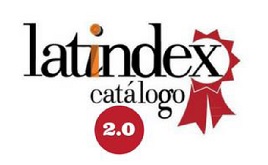Oportunidades de mejora del código de ética del IFAC sustentadas en la industria de inversiones
DOI:
https://doi.org/10.53641/junta.v1i1.6Palabras clave:
ética profesional, innovaciones éticas en contabilidad, empresas financieras, ética en las organizaciones financierasResumen
Con la finalidad de encontrar oportunidades de mejoras del código de ética del IFAC, el presente artículo busca realizar una comparación exhaustiva entre los principios y normas del código mencionado, y las normas éticas aplicables a los profesionales que se desempeñan en la industria de las inversiones, considerando como referencia el código de ética del CFA, y un método no experimental, relacional y transeccional. Asimismo, para obtener la designación del CFA y cumplir con su código de ética, se realizan exámenes sobre este último, se exhorta a fomentar y sugerir herramientas éticas, se define la actuación ante un conflicto o aparente conflicto de interés, y se sugiere la eliminación del plagio. Además, se establecen parámetros en prácticas independientes y la terminación de la relación con el empleador, mientras que el aprendizaje del código se sustenta en casuística. Por último, se concluye que existen oportunidades de mejora principalmente respecto de la introducción de casuística, y de la obligatoriedad de un examen al nivel del fomento de herramientas éticas, a los conflictos de intereses, al plagio y a las prácticas independientes, así como a los soft dollars y al uso de información bajo la teoría del mosaico.
Descargas
Referencias
ALATRISTA, M. A. (2015). Ética del Contador Público. Revista de Contabilidad y Dirección, 119-130.
ARISTÓTELES. (2003). Ética eudemia. (P. De Azcarate, Trad.) Buenos Aires, Argentina: LOZADA.
BUNGE, M. (2009). CRISIS Y RECONSTRUCCION DE LA FILOSOFIA. Argentina: Gedisa.
CAPCHA, J., & VILCHEZ, P. (2005). La dimensión cognitiva de la crisis contable y la estrategia holística para la recuperacion de la confianza. Salvador Bahía, Brasil. Recuperado el 24 de 06 de 2017, de https://www.gestiopolis.com/dimension-cognitiva-crisis-contable-estrategia-holistica-confianza/
CFA INSTITUTE. (2017). Ethical and Professional Standards Quantitative Methods, and economics (Vol. 1). USA: WileyGlobalFinance.
CFA SPAIN. (s.f.). ¿Por qué contratar un CFA Charterholder? Head Hunters & Employers Outreach Committee. Madrid, Madrid, ESPAÑA. Recuperado el 2017, de https://www.cfasociety.org/spain/es/Documents/Por%20que%20contratar%20a%20un%20CFA.pdf
COFFEE, J. C. (30 de Julio de 2002). Understanding Enron: It's About the Gatekeepers, Stupid. Columbia Law & Economics Working Paper(207). Obtenido de https://ssrn.com/abstract=325240
COMBATT, A. (abril de 2010). La responsabilidad del analista financiero como tercero de confianza. Vniversitas, 59(120), 201-236. Obtenido de http://revistas.javeriana.edu.co/index.php/vnijuri/article/view/14457/11653
DE NICHELE, R. (1999). Los códigos de ética en las empresas. Buenos Aires: Granica S.A.
DÍAZ, B. N. (1 de Diciembre de 2001). Tesis de Maestría. Código de ética profesional del Contador Público factores que inciden en la práctica profesional un estudio a los alumnos que cursan maestría. Nuevo León, Nuevo León, Mexico: Universidaad Autónoma de Nuevo León.
GAARDER, J. (2009). El mundo de Sofía. Madrid: Siruela.
IESBA, INTERNATIONAL ETHICS STANDARDS BOARD FOR ACCOUNTANTS. (2014). Manual del Código de Ética para Contadores Profesionales. New York USA: IFAC, International Federation of Accountants.
IESBA, INTERNATIONAL ETHICS STANDARDS BOARD FOR ACCOUNTATS. (2016). Handbook of the Code of Ethics for Professional Accountants. New York USA: IFAC, International Federation of Accountants.
LOPEZ & VELASCO, CARLOS Y AMBROSIO. (s.f.). UNAM. Obtenido de las dimensiones políticas de la ciencia y la tecnología: http://www.libros.unam.mx/digital/V5/7.pdf
ORCUTT, J. L. (2004). INVESTOR SKEPTICISM V. INVESTOR CONFIDENCE: WHY THE NEW RESEARCH ANALYST REFORMS WILL HARM INVESTORS. Pierce Law Faculty Scholarship Series. Obtenido de http://lsr.nellco.org/piercelaw_facseries/6
REVILLA, S. H. (20 de mayo de 2015). Influencia del comportamiento ético y el ejercicio profesional del Contador Púbico armonizado con las exigencias del nuevo régimen económico. TESIS. Trujillo, La Libertad, PERÚ: Universidad Nacional de Trujillo.
SANAGUSTÍN, M. V. (2011). Valores y ética empresarial un enfoque sociológico. Madrid: Trotta.
SCHMIDT, E. (2014). Ética y negocios para América Latina (4ta. ed.). Lima: Universidad del Pacífico.
WILEY, J. &. (2017). LEVEL II CFA STUDY GUIDE. corporte finance & equity (Vol. 3). New Jersey: wiley Inc.
Fecha de recepción: 19/11/2018
Fecha de aceptación: 29/11/2018
Correspondencia: villanuevacarmen@gmail.com
errolce@hotmail.com
Descargas
Publicado
Número
Sección
Licencia
Derechos de autor 2018 Carmen Isabel Villanueva Ipanaqué, Errol Arturo Centti Villanueva

Esta obra está bajo una licencia internacional Creative Commons Atribución 4.0.









